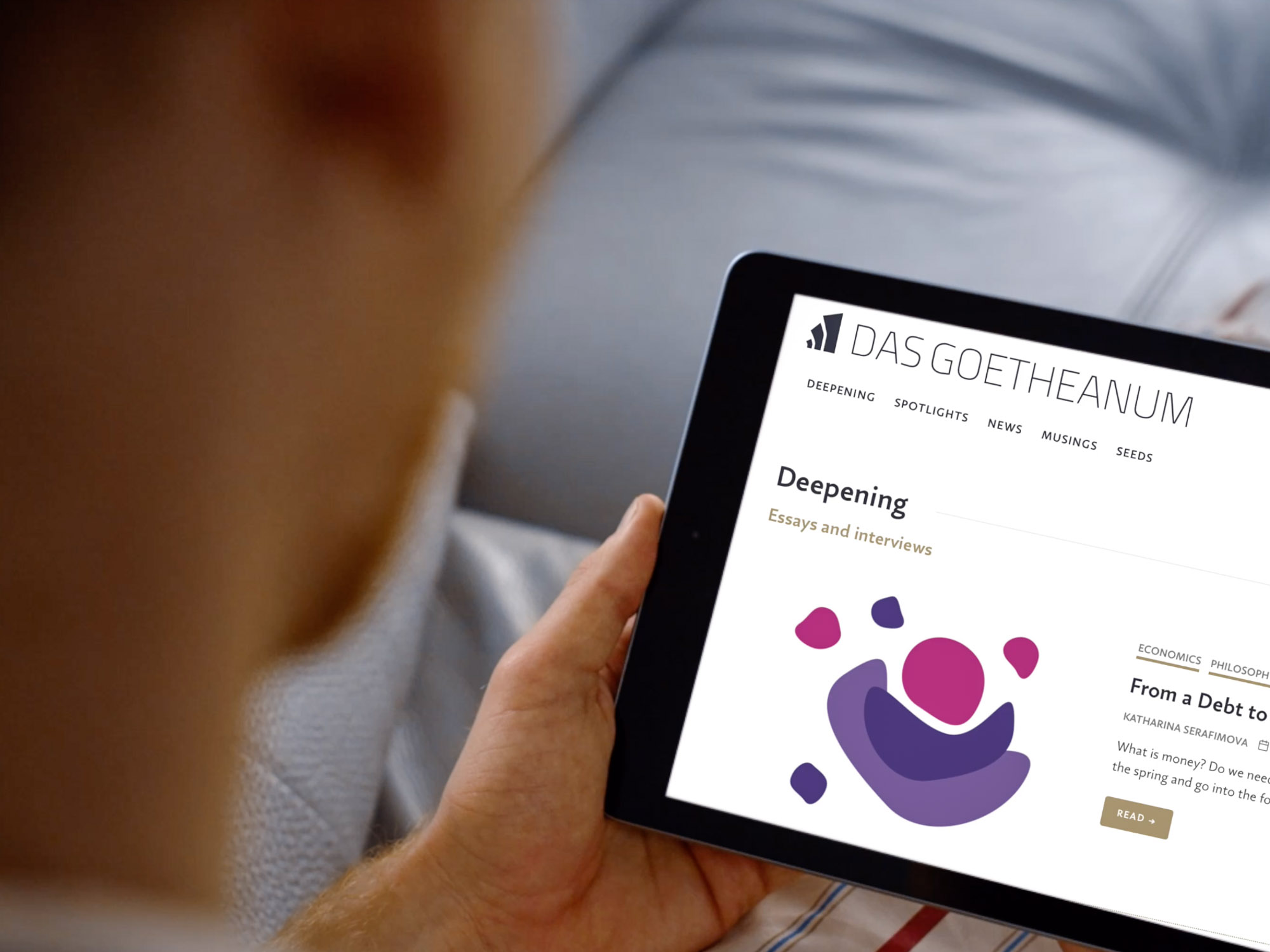The English edition of the Goetheanum’s ‹Wochenschrift› (Weekly Journal) has been running for ten months now, and every week there is a compiled edition that tries to show anthroposophy and the anthroposophical life in – and for – the world.
Those of us in the editorial office thought long and hard about what we should call the English version of the Wochenschrift and who we wanted to address with it. Of course, it is the ‹English Edition›, but actually, the concern was, and is, to make an anthroposophical journal internationally available online. In this way, we wanted to connect anthroposophically oriented people from all over the world, to each other, to Dornach, to the Goetheanum, and above all, to how anthroposophy exists in the world – not only in German-speaking countries. The English language is the appropriate medium for this, even if we are still toying with the idea of a French and Spanish edition.
We now have 600 subscribers, mainly from North America, Australia, and New Zealand, i.e., English-speaking countries. About a third of these subscriptions are from European countries such as Great Britain, the Netherlands, and Italy.
We have good contacts in Asia too, most of which have come about through Walter Siegfried Hahn who lives in the Philippines and does anthroposophical networking there. He is like a foreign correspondent for us. We also want to involve Africa and South America more closely and invest in this network in the coming year. Thanks to our new, German-speaking American colleague Charles Cross, who currently lives in Dornach, we are now connected to the anthroposophical scene in North America and England. We are slowly building up an international authorship and reporting on projects from all corners of the world, delivering essays, reflections on art, interviews, and being a mirror for anthroposophy outside Dornach. The German and English editions are indeed mutually beneficial, and we are repeatedly translating articles for each other. As a result, the ‹English Edition› also focuses on the non-European world for readers of the German Wochenschrift. Furthermore, people from other continents are getting to know what the German-speaking anthroposophical world thinks and does.
But there are ‹problems› too, and interesting questions that have only arisen due to the actual publication of the English edition. The annual digital subscription, for example, costs 80 euros, which is not considered much by European or Western standards. Early on though, we got feedback that this was too expensive for people in China, Pakistan, Africa, and South America – and Eastern European friends of anthroposophy felt the same. The question is therefore: How can we make it possible for less affluent people to subscribe to the Wochenschrift if they want to? With gift subscriptions? With a lower subscription price for less prosperous regions of the world? (Information can be found on the registration form on the website.) The question of profitability, but also of fraternity, could make the English edition a novel product of a completely different kind. A ‹community product› which is made possible by people for people. One of our American subscribers asked in a reader response forum about the Michaelic impulses of the weekly. We feel it is Michaelic to network around the world and thus offer a forum where people can perceive themselves with their references to anthroposophy. It would be a big step if this were also to come to fruition economically speaking. We currently still have to ensure that the project is self-sustaining. For the rather remote corners of the anthroposophical world, and for European consciousness, the English edition also means being noticed. This is a strengthening and expansion for everyone, but also a preservation of individuals’ freedoms. The medium of language contributes to thoughts, but thoughts are free.
Another aspect of this ‹collective consciousness work› is evident in the translations. Language spirits refer to various aspects of phenomena. How can the style of a linguistic genus or even a culture be preserved if I translate it into English or German? These subtleties and differences are much more evident in the ‹English Edition›. As a result, the world comes to us and becomes sensually perceptible, even in the online medium.
The English edition of the weekly is like the thought-child that the wisdom of man weaves and rules in the world. We are glad to have taken these first steps and look forward to the coming ones, getting to know each other, and growing together.
Translation Monika Werner
Image Reading the English Edition online













